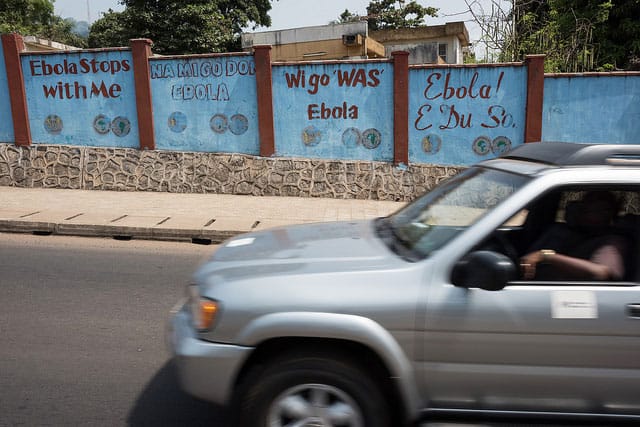Supply Chain Lessons for the Next Public Health Emergency
July 2nd, 2018 | viewpoint
When the Democratic Republic of the Congo’s (DRC) first case of the Ebola Virus Disease was reported, I monitored the reports with a sense of trepidation and could not help but think back to the devastating outbreak in 2014 that affected Liberia, Sierra Leone, and Guinea. I gave a great sigh of relief when I read the World Health Organization’s (WHO) most recent situation report, indicating that the circumstances are stabilizing.
Yet while the conditions in DRC are promising, we know that future public health emergencies are unfortunately inevitable. We must look to the current response in DRC, as well as those elsewhere, to gather important lessons as we prepare for the next crises. Below are three supply chain lessons that are relevant for us to consider:
1. Readiness: Chance favors the prepared
As Louis Pasteur so aptly said, chance or fortune favors the prepared. Both the WHO and DRC’s preparation, along with the DRC’s previous experience with Ebola, enabled a rapid response. WHO is now working with DRC’s nine bordering countries to ensure that their emergency preparedness and response plans are adequate and can be quickly scaled-up if needed. It is also reassuring that logistics is included as one of the key focus areas.
To help prepare disaster response organizations, JSI is working with the USAID’s Office of U.S. Foreign Disaster Assistance to develop a reference on supply chain management of pharmaceuticals and other health commodities during the acute phase of a disaster response. JSI will train response organizations on how to use the new resource, which will complement and extend JSI’s existing Supply Chain Manager’s Handbook.
In addition to our international support, JSI also works with national, state, and local emergency officials in the US to prepare for emergencies, helping to strengthen capacity, including designing and conducting hazard risk assessments, disease surveillance, continuity of operations planning, and medical surge and medical countermeasures dispensing. For example, JSI worked closely with multi-disciplinary partners from six states to develop the US Health and Human Service Region 1 Ebola and Other Special Pathogens Regional Coordination and Response Plan. We also work in concert with state public health departments to develop high-threat infectious disease annexes to add to existing public health emergency response plans.
2. Coordination: A harmonized response and agile solutions are essential
Managing supply chains, particularly sourcing, financing, planning, and delivering products, in rapidly changing environments, requires agile and flexible approaches and coordination among different actors at global, regional, and national levels.
In South Sudan, from 2014 to 2016, in close consultation with USAID, the Ministry of Health (MOH), the Logistics Cluster, and partners, JSI developed and implemented distribution plans for delivering Emergency Medicine Fund (EMF) kits and other commodities to 81 county health departments. The World Food Programme transported EMF commodities to the three conflict-affected states of Jonglei, Unity, and Upper Nile. Commercial freight forwarders transported commodities to the remaining seven states. As a result of these efforts, at least 280,000 cartons—or 50,000 kits—were distributed to all ten states.
3. Recovery and Resilience: Strengthen systems to mitigate resurgence and better prepare for future emergencies
While the early onset of an emergency typically generates the most attention and support, it is equally important to recognize the evolving community needs and stages of the emergency as it transitions from crisis to a more sustainable recovery phase.

Through the Advancing Partners & Communities project, JSI is supporting the USAID-funded Ebola Transmission Prevention and Survivor Services (ETP&SS) program. In support of ETP&SS, JSI has been collaborating with the MOHs and NGOs in the three West African countries that were most affected by Ebola to mitigate the risk of resurgence and strengthen the health system’s ability to provide services. This program works closely with both the national health system and local organizations, improving Ebola survivors’ access to health services while enhancing health system capacity, which includes renovating and equipping health facilities and supporting the quantification and distribution of essential medicines.
Public health emergencies are unfortunately inevitable—it’s not a question of ‘if’ but rather ‘when’ an emergency will occur. By learning from current and recent responses, we can better ready supply chains for these next emergencies so that those who are most affected have access to the high-quality health supplies they need, want, and deserve to better survive, thrive, and transition to more stable living conditions.
Written by Edward Wilson
We strive to build lasting relationships to produce better health outcomes for all.